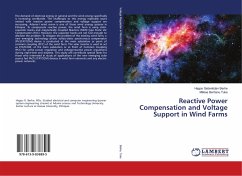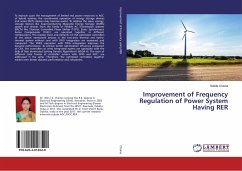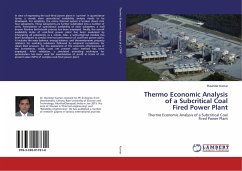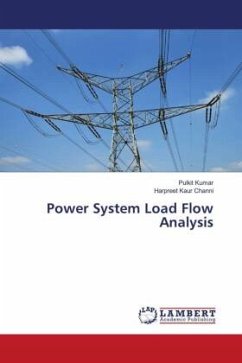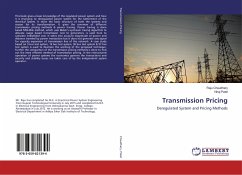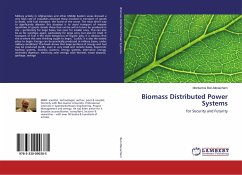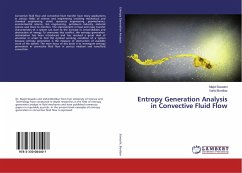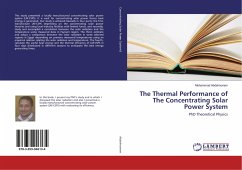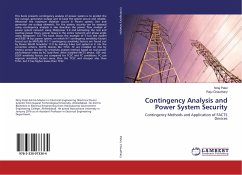
Contingency Analysis and Power System Security
Contingency Methods and Application of FACTS Devices
Versandkostenfrei!
Versandfertig in 6-10 Tagen
33,99 €
inkl. MwSt.

PAYBACK Punkte
17 °P sammeln!
This book presents contingency analysis of power system is to predict the line outage, generator outage and to keep the system secure and reliable. Whenever the maximum violation occurs in Power system, line and generator are outage elements. For the system, security can be assessed using contingency analysis. It also describes the power flow analysis of power system network using Matpower 5.0 and estimating the real and reactive power flows, power losses in the entire network and phase angle using Matpower 5.0. This book shows the example of 5 bus test system and IEEE-14 bus power system, on ...
This book presents contingency analysis of power system is to predict the line outage, generator outage and to keep the system secure and reliable. Whenever the maximum violation occurs in Power system, line and generator are outage elements. For the system, security can be assessed using contingency analysis. It also describes the power flow analysis of power system network using Matpower 5.0 and estimating the real and reactive power flows, power losses in the entire network and phase angle using Matpower 5.0. This book shows the example of 5 bus test system and IEEE-14 bus power system, on which N-1 contingency sensitivity factors found out by MATLAB. N-1-1 contingency sensitivity factors are found out by Power World Simulator 11.0 by making 5-bus test system in it. For the corrective actions, FACTS devices like TCSC, FC are installed on line by finding proper location by sensitivity analysis method based on real power performance index by AC load flow. After installed FACTS device, GSF and LODF sensitivity factors are compared for TCSC and FC conditions. FC can improve sensitivity factors more than the TCSC and cheaper also than TCSC, but it has higher losses than TCSC.



